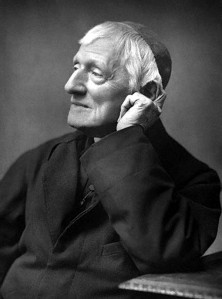Distractions. They are an age-old problem for mankind. In this age of high-speed-everything they are more prevalent than ever. Below are a couple of stories I used as bookends during the class on lectio divina that I led during Lent to illustrate how distractions affect our prayer lives. But first, a few examples pulled from today’s headlines that not only affect our prayer lives, but how we engage our overall lives as well.
The media uses distractions each day to keep citizens occupied on things that don’t really matter or lie in order to mold an agenda. Politicians are masters of this tactic. Need examples?
- We’re just shy of $17 trillion in debt as a nation. If you are one of the three out of four children fortunate enough to be born and survive abortion in the United States (1 out of 2 in NYC if you’re an African-American baby) you enter the world $50,000 in debt when you draw your first breath, yet somehow the president and the media have convinced the nation that the most pressing matter of our age is gay marriage. And so family and friends are divided over lines in the sand because of an issue that until recently wasn’t on our national radar while a trial in Philadelphia involving babies born alive and having their spinal cords snipped with scissors is ignored by a media who will never report on a serial killer who is not a white supremacist, but a black man killing children in the name of choice without the use of an assault weapon. Because that doesn’t fit the narrative you see. Meanwhile during a Florida legislature committee hearing a Planned Parenthood official from Florida argued for the right to kill babies that survive an abortion. Nothing to see here…oh wait, gay marriage! We are not a serious nation or people.
(People accusing me of hating gays and being a racist, bigoted homophobe for using this issue as a comparison to appear in 3, 2, … )
- Something else that doesn’t fit the unserious nation’s narrative: a gay Catholic man who supports his Church and fellow Catholics.
I have heard a lot about how mean the Church is, and how bigoted, because she opposes gay marriage. How badly she misunderstands gay people, and how hostile she is towards us. My gut reaction to such things is: Are you freaking kidding me? Are we even talking about the same church?
Steve Gershom is a pro-Catholic, pro-chastity man with same-sex attraction. He recently wrote about the stereotypes regarding the Catholic faith and members of the Church with regards to same-sex marriage.
Where are all these bigoted Catholics I keep hearing about? When I told my family a year ago, not one of them responded with anything but love and understanding. Nobody acted like I had a disease. Nobody started treating me differently or looking at me funny. The same is true of every one of the Catholic friends that I’ve told. They love me for who I am.
Actually, the only time I get shock or disgust or disbelief, the only time I’ve noticed people treating me differently after I tell them, is when I tell someone who supports the gay lifestyle. Celibacy?? You must be some kind of freak.
Hooray for tolerance of different viewpoints. I’m grateful to gay activists for some things — making people people more aware of the prevalence of homosexuality, making homophobia less socially acceptable — but they also make it more difficult for me to be understood, to be accepted for who I am and what I believe. If I want open-mindedness, acceptance, and understanding, I look to Catholics.
I touched a little upon this subject last week. While we have hearts to continue to change sitting within our own pews and among us as the Body of Christ, Mr. Gershom points out that the minds and hearts of those not in the pews need to change as well.
Distractions are lies we tell ourselves or are told by others so that our eyes are not focused on the truth.
*****
One day St. Benedict was passing on horseback along a country road when he overtook a farmer trudging along on foot. “Well,” said the farmer, “I’m sorry I didn’t take to praying as a profession; I might be riding now instead of walking; and what an easy way of getting up in the world!” “It’s not so easy after all,” responded the saint. “But if you will say one ‘Our Father’ without a distraction, this horse is yours.” “Done!” said the farmer, and he began, “Our Father, who art in heaven, hallowed by Thy name…” etc. But scarcely had he reached the middle of the prayer when, suddenly looking up, he asked: “Am I to have the saddle and bridle, too?”
*****
This is where we are, or most of us anyway. Fixated upon the things we want but unable to maintain our focus on what it takes to actually earn them for long enough to achieve success. We compound the problem by demanding that our failure be rewarded anyhow because we really did try hard and besides it’s not fair that we shouldn’t have what others have. And so we redefine old words and old traditions so that we are just like everyone else, and our failure to persevere through distractions is rewarded.
Lest you think I’m still talking about SSM you would be wrong. The above paragraph applies to any host of issues or things that we feel we deserve.
*****
 A young man, the son of pious parents who had taught him to kneel down every morning and night and say his prayers, enlisted in the army. The first night in the barracks he knelt down by his bedside as he was accustomed to do, and silently recited his night prayers. The other soldiers, his seniors both in age and in the service, had never witnessed such a proceeding; they openly ridiculed him for it. As he took no notice of this, they began to roar with laughter, to whistle and stamp their feet. However, he did not allow himself to be bothered, and he calmly finished his devotions and then lay down in bed. The second evening he knelt down as before. This was the signal for a similar outburst of noise as on the preceding night. On the third evening the same took place, but the young man was not disconcerted and paid no heed to what was said or done. At last one of the noisiest of the men said: “Let the lad alone, comrades; there is the making of a good soldier in him. He can stand fire.”
A young man, the son of pious parents who had taught him to kneel down every morning and night and say his prayers, enlisted in the army. The first night in the barracks he knelt down by his bedside as he was accustomed to do, and silently recited his night prayers. The other soldiers, his seniors both in age and in the service, had never witnessed such a proceeding; they openly ridiculed him for it. As he took no notice of this, they began to roar with laughter, to whistle and stamp their feet. However, he did not allow himself to be bothered, and he calmly finished his devotions and then lay down in bed. The second evening he knelt down as before. This was the signal for a similar outburst of noise as on the preceding night. On the third evening the same took place, but the young man was not disconcerted and paid no heed to what was said or done. At last one of the noisiest of the men said: “Let the lad alone, comrades; there is the making of a good soldier in him. He can stand fire.”
*****
Whether we like it or not we are soldiers in this life. We have a mission, and the stakes upon which it rests are more important than we are willing to admit or even realize. People depend upon us: family, loved ones, friends, neighbors…the consequences of our success or failures ripple outward from our little command posts. Our success depends upon our ability to swat distractions from our face much as we’d swat away flies. We must be able to withstand fire.
Cardinal John Henry Newman (1801-1890) recognized that he had a mission and was not deterred nor distracted from it. I read this quote in George Weigel’s new book Evangelical Catholicism over Easter and was so struck by it that I highlighted the paragraph. It fits well with what I’ve written of many times before, and will again: Contemplation. Communion. Mission.
*****
 God has created me to do him some definite service. He has committed some work to me which he has not committed to another. I have my mission. I may never know it in this life, but I shall be told it in the next. I am a link in a chain, a bond of connection between persons. He has not created me for naught. I shall do good; I shall do his work. I shall be an angel of peace, a preacher of truth in my own place, while not intending it if I do but keep his commandments. Therefore, I will trust him, whatever I am, I can never be thrown away.
God has created me to do him some definite service. He has committed some work to me which he has not committed to another. I have my mission. I may never know it in this life, but I shall be told it in the next. I am a link in a chain, a bond of connection between persons. He has not created me for naught. I shall do good; I shall do his work. I shall be an angel of peace, a preacher of truth in my own place, while not intending it if I do but keep his commandments. Therefore, I will trust him, whatever I am, I can never be thrown away.
If I am in sickness, my sickness may serve him, in perplexity, my perplexity may serve him. If I am in sorrow, my sorrow may serve him. He does nothing in vain. He knows what he is about. He may take away my friends. He may throw me among strangers. He may make me feel desolate, make my spirits sink, hide my future from me. Still, he knows what he is about.
*****
Steve Gershom, Saint Benedict and the young soldier have or had a mission. Cardinal Newman did too, and in his second paragraph above named the distractions that he knew he would face. Still he persevered. He could stand fire.
What are the distractions in your life? What can (or are you willing to) do about them?
_____
Sources:
St. Benedict & The Farmer: Rev. Francis Spirago, Anecdotes and Examples for the Catechism (Roman Catholic Books, 1903) p. 377.
The Young Soldier: Ibid. pp. 364-365.
Cardinal John Henry Newman: George Weigel, Evangelical Catholicism: Deep Reform in the 21st-Century Church. (Basic Books, 2013). p. 78.

My main distraction is anger in reaction to things that upon more sober reflection, aren’t worth the time and energy I spend fuming about them. The slowness with which churches, governments and social groups evolve in response to ethical questions used to irritate me very much. Now, I just change my own behavior and attitudes. I’m not waiting around for glaciers to alter course.
LikeLike